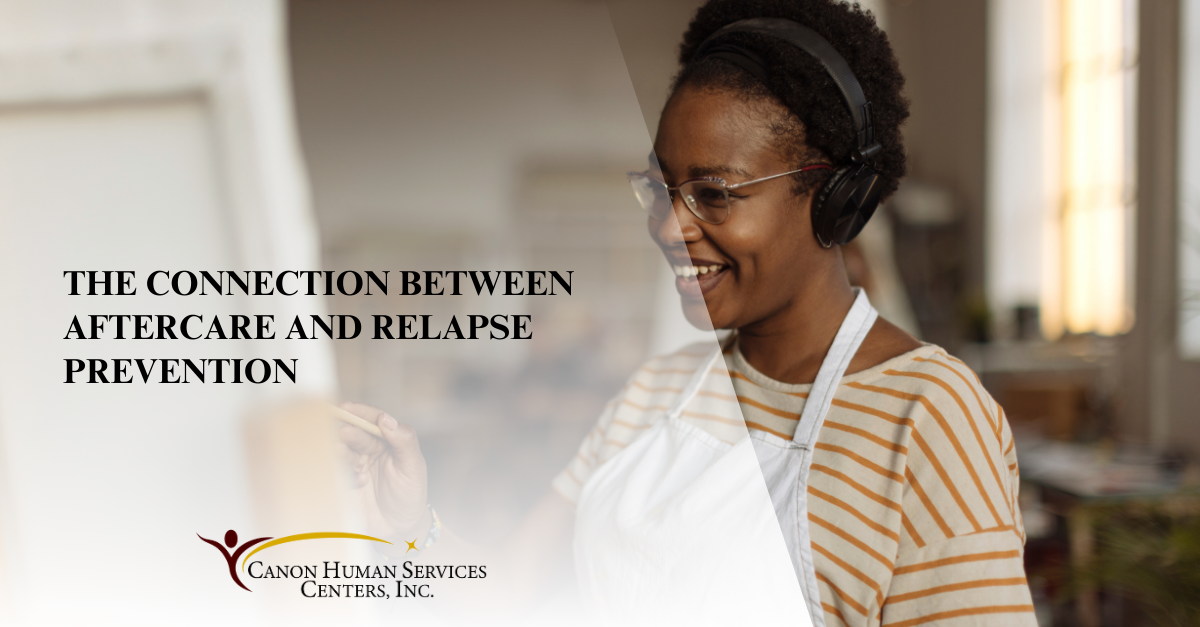When the initial phase of recovery ends, the real work of sustaining a substance-free lifestyle begins. Maintaining sobriety is no small feat, and the risk of relapse can loom large without the right support structure in place. This is where aftercare programs become a critical component in maintaining one’s recovery.
At Canon Human Services, we specialize in helping individuals overcome their challenges and misconceptions about addiction recovery. Today, we will explore how aftercare directly reduces the risk of relapse and discuss essential strategies employed in these programs to help recovering individuals stay on track.
Why Aftercare Programs Matter in Preventing Relapse
Addiction recovery isn’t a quick fix. While completing a rehab program marks an important milestone, it’s only the beginning of a much longer process. According to the National Institute on Drug Abuse (NIDA), relapse rates among individuals recovering from substance use disorders are as high as 40-60%. An effective aftercare program can make a world of difference in helping individuals avoid becoming part of this statistic.
What Exactly Is Aftercare?
Aftercare refers to the ongoing support and resources provided to individuals after they complete a structured treatment program. These programs build a safety net for recovering individuals, ensuring they can access guidance, tools, and accountability as they transition back to their daily lives.
Aftercare is not one-size-fits-all. Depending on the individual’s needs, it can include therapy, group support meetings, lifestyle coaching, or even financial and employment assistance.
The Role of Aftercare in Preventing Relapse
- Maintaining Accountability:
Aftercare programs integrate tools that help individuals remain accountable for their recovery. Regular therapy sessions and group discussions provide spaces where participants can share their progress, setbacks, and challenges.
- Support During Crises:
Life’s challenges don’t wait for recovery to solidify. Stressors such as family conflict, financial strain, or encountering old triggers can re-emerge unexpectedly. Aftercare ensures that a reliable support network is available during these vulnerable moments.
- Building New Coping Mechanisms:
Relapse often stems from a lack of effective coping strategies. Aftercare programs provide continued education and practice in managing stress, cravings, and triggers.
- Creating Structure:
The transitional period between rehab and a return to daily life can feel overwhelming. Aftercare programs introduce structure through planned activities and tasks, reducing downtime, which can sometimes lead to harmful behaviors.
Key Relapse Prevention Strategies in Aftercare Programs
Effective aftercare programs are built on evidence-based relapse prevention strategies. One of the most impactful methods is trigger identification and management. A crucial component in preventing relapse involves recognizing personal triggers, whether they are specific places, people, situations, or emotions. Aftercare helps individuals pinpoint what could lead to cravings and equips them with tools to address these challenges effectively. For instance, many programs use Cognitive Behavioral Therapy (CBT) to teach individuals how to reframe their thinking and avoid falling into negative patterns.
Building a sober support network is another key aspect of aftercare. Recovery should not be faced alone, which is why these programs prioritize peer support. Group therapy sessions, 12-step meetings, and sober social events provide opportunities for individuals to form meaningful connections with others who understand their struggles. This sense of belonging often serves as a powerful deterrent to relapse.
Another essential element is continued therapy, which remains critical even after completing detox and rehab. Therapy supports individuals as they deal with lingering emotional wounds, often through individual or family counseling. These sessions enable participants to explore the underlying factors that contributed to their addiction and continue their personal growth.
Stress and craving management techniques are also integral to aftercare. Programs frequently incorporate practices like mindfulness, meditation, and breathing exercises. These techniques empower individuals to manage their emotions effectively, reducing stress while also helping them control cravings.
Recovering from addiction often necessitates relearning practical life skills, such as budgeting basics or conflict resolution. Aftercare programs provide training in these areas, equipping participants to manage daily responsibilities and stress without resorting to old habits.
Lastly, relapse education is vital for long-term recovery. Educating individuals about the signs of relapse, such as emotional, mental, and physical stages, empowers them to identify issues early and take proactive steps. By recognizing these warning signs, aftercare programs turn potential setbacks into opportunities for intervention, significantly reducing the risk of a complete relapse.
How Aftercare Benefits Families
The aftercare process doesn’t just impact recovering individuals. Family members play a huge role in this phase, and they often benefit from the resources these programs offer. Family therapy, educational workshops, and support groups help rebuild trust, improve communication, and foster a healthier home environment.
By focusing on reducing harm and cultivating understanding, aftercare brings clarity and peace to relationships that may have been strained by addiction.
Breaking Misconceptions About Recovery
One of the biggest barriers to effective recovery is the stigma surrounding addiction and aftercare. Struggling with addiction is not a reflection of a person’s character or willpower—instead, it is a complex disease that requires continuous treatment and support.
Aftercare works to dismantle this stigma by reinforcing the narrative that recovery is an ongoing process, not a one-time achievement. It’s not about perfection; it’s about progress.
Helping Individuals and Families Find Their Path to Recovery
At Canon Human Services, we believe that recovery is possible for everyone, but it requires the right tools and support. Programs tailored to an individual’s unique needs, coupled with expert guidance and unwavering commitment, are the key to long-term success.
Whether you’re a rehab professional seeking better outcomes for your clients or a family member hoping to support a loved one’s recovery, understanding the link between aftercare and relapse prevention is crucial.
If you or someone you care about is ready to take the next step, reach out to Canon Human Services. Together, we can build a foundation for lasting recovery.

